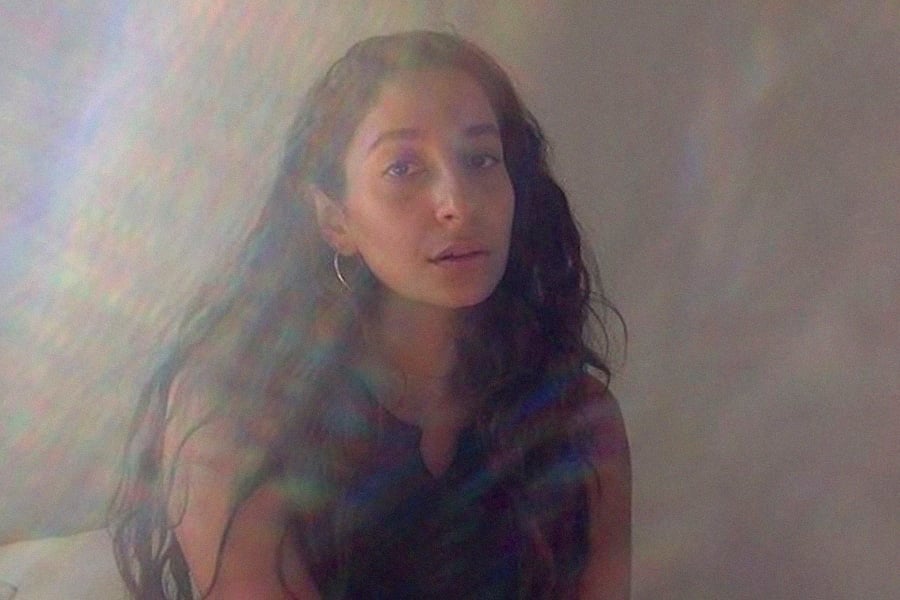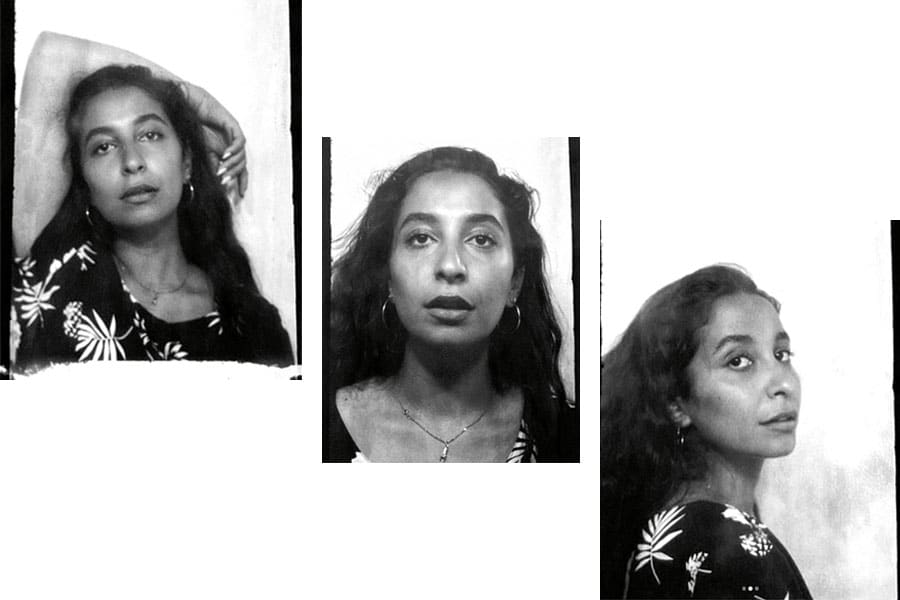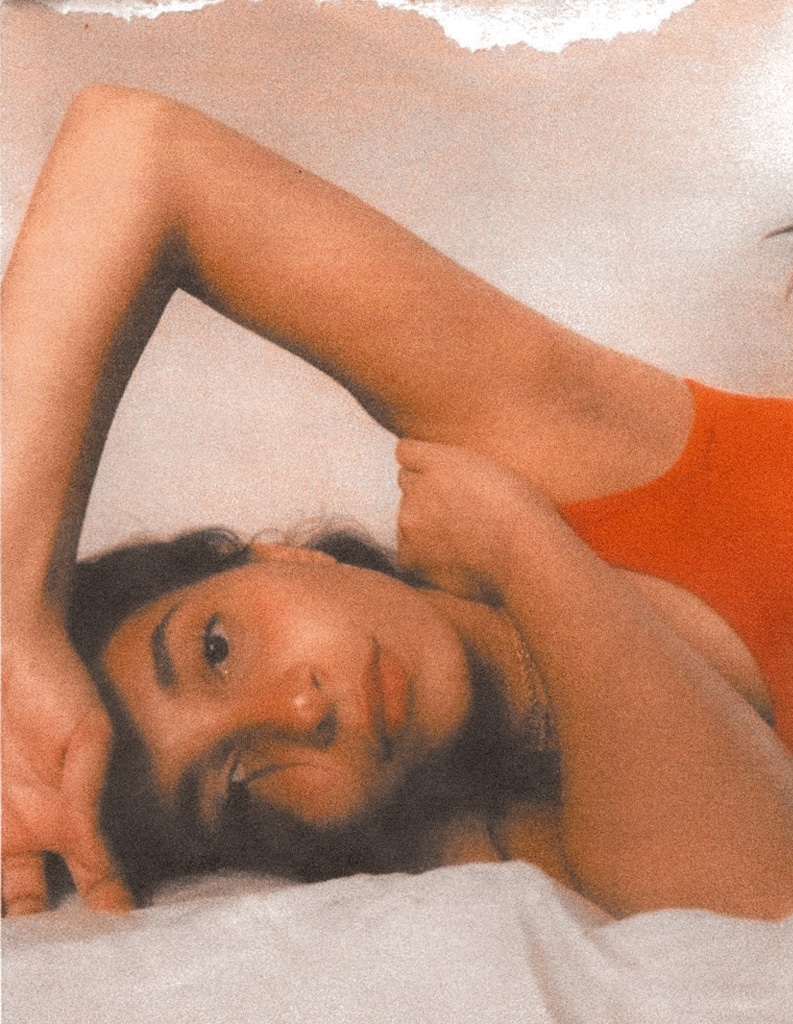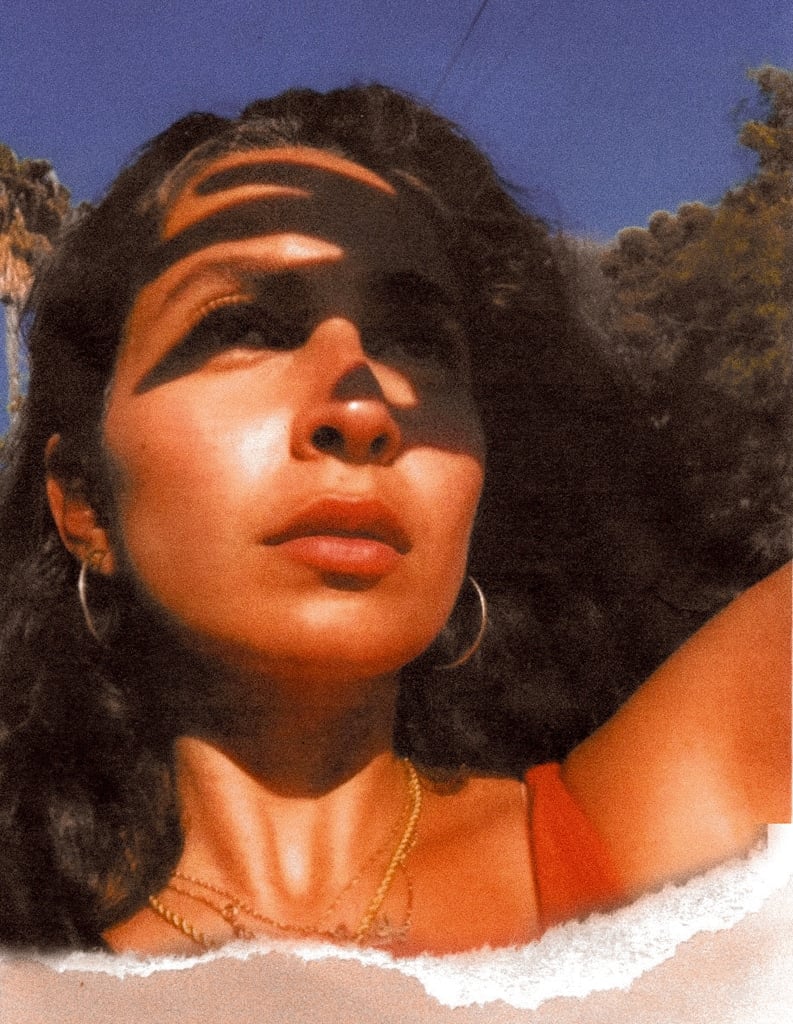
"It’s about trusting that I’m not that unique. I can make a breakup song so specific to me, but even in that specificity, so many people can fall into that totality. It’s a reminder that this is a shared human experience.” Wafia Al-Rikabi is reflecting on what it means to be vulnerable with her own narrative, a sentiment that makes it into most of her lyrics. No holding back.
The 27-year-old Iraqi-Syrian singer-songwriter isn’t afraid to let you know that she’s familiar with heartbreak in many forms. That of romance, that of friendship, and that of missing her family who are in her home city Brisbane, Australia while she bases herself out of Los Angeles after a year of gluing herself back together. The result of which is Good Things, an EP released in August, grounded in self-fortification and resilience, a love letter to oneself as they emerge out of the fog of heartbreak and into an existence washed clean, crystalised in moments of catharsis. A joyful representation of a process many of us know all too well.
The beginning of her career was intrinsic of sorts, dropping out of her studies in biomedicine after an exam she left early, with the gut feeling that it “didn’t matter anymore.” Despite not having seen a lot of blueprints for Middle Eastern women in music, it was that intuition that led her to choosing her moment, which was in releasing a cover of Let Me Love You by Mario – the catalyst for some of her most prolific collaborators.

Here, Al-Rikabi talks on the rewards of laying oneself bare, her last joyful moment on stage, and her idea of success, which takes root in having her needs met. Nothing more, nothing less.
I read that when you released your EP Good Things, you based it off shedding a lot of heaviness in the last year and moving on from bad relationships and friendships. Why did it feel important to acknowledge these shifts in line with the release?
I find grieving is always done in private. I did a lot of it in private, alongside going through a romantic breakup, I also lost a friendship. I’ve only ever been as transparent as I feel comfortable being with my audience, and why would I not share that? It always comes through in my music. It’s part of being an artist, I love to share what I went through. Maybe that’s a lack of boundaries but I don’t know any other way. I find that transparency is the great equaliser. In allowing myself to get vulnerable with my audience, that is then reciprocated back at me tenfold. And that to me is so rewarding.
Do you feel like that transparency helps you move through your emotions in certain ways?
I always find that by the time I write the song and the songs are released, I’ve gone through most of the emotions as it relates to a romantic breakup. What was quite surprising, is that there’s a song on the EP called How to Lose a Friend, and I still don’t really have a lot of closure on that. In releasing the song, it brought up a lot of feelings and then I couldn’t celebrate a lot of my wins with my old best friend.
Is moving through difficult things something that inspires you to produce music? Do you feel as though it can function as a catalyst for what gets you to start writing?
I have to make a very clear distinction in that yes, it’s what fuels the writing, but it’s not something that I seek. And I think that’s something I had to really teach myself not to do. Because it can be easy as an artist to stay in something that’s destructive because it fuels passion and therefore creates art. I’ve learned this isn’t very conducive to my mental health so, I’m trying to not do that.
Are sentiments of connecting with your audience and having them see themselves in you something that is important to you when song writing initially?
I don’t know that it’s healthy for me to go into the studio thinking about how I can do this for other people. The only way I really know how to write is from my point of view, and it’s also about trusting that I’m not that unique. I can make a breakup song so specific to me, but even in that specificity, so many people can fall into that totality. It’s a reminder that this is a shared human experience.

How is your practice informed by the world around you?
I feel a lot of things as a person. One time I went to therapy, and I went for like, six, seven months. At the end of it, I’m in tears, the new year has just started, and I turned to my therapist, I’m like, ‘Give it to me, what’s wrong with me? Diagnose me,’ and she looks at me and goes, ‘You’re an artist, you feel a lot of things and you wear your heart on your sleeve, and you move through the world that way. And that’s a much better way to move, then closed off totally.’ That was very eye opening to me in that moment. I realised this is just the way that I am, the only way I know is to be very vulnerable. And so, I think that I encourage my song writing very much in the same way.
Who inspires you that has forged their career based off either their identity, the music that they create, or the way that they move through the world?
When I started out, I didn’t really see myself in a lot of people. The people that I admire the most are people like Kacey Musgraves, Solange, Rihanna of course. This powerhouse of women that do it all and very much in their own artistic ways. I love that. But I honestly still struggle to see myself in lot of people. I always think about my sisters when I answer questions as it relates to this kind of stuff because I can’t speak for everyone. But I know that within my own family, the impact that me going into the arts has made, it opens up all the doors – any door that my sisters can dream of. And that’s my own little microcosm. If the only impact I make in this world, is on those two people, my two younger sisters, that is enough.
If the only impact I make in this world, is on those two people, my two younger sisters, that is enough
What do you hope people feel when they listen to Good Things and your music in general?
I hope they feel less alone. I hope they feel seen by it in some way. I would just hope that they feel like they have a friend in me.

How are you finding joy when you’re not able to perform as usual with so many restrictions still in place?
I find joy in baking and cooking new things. I’m currently into playing tennis and getting my body moving. I find joy in retreating to nature. I’m finding joy in books. I’m finding it in my favourite part of my day, which is around this time between 3 and 4pm in LA where I call home and hear my parents’ voices. Those are the things keeping me alive right now.
I wondered what your last joyful moment on stage was?
My parents and my family were at my last Brisbane show, which was my first all-ages event. Having my parents and my litter sisters there with me, it made me feel very proud of what I have achieved. And then of course, I miss hearing people sing my songs back at me.
What does success look like to you?
It looks like having everything that I need. Having all my needs met.



